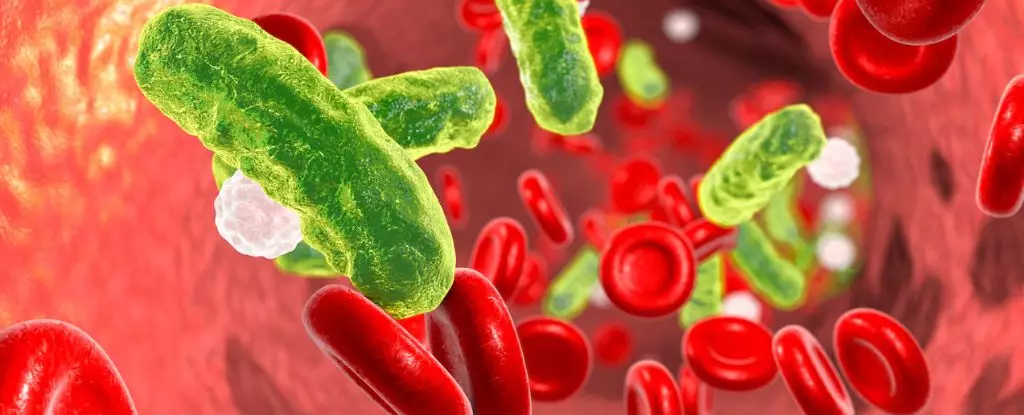In a groundbreaking discovery, scientists at Uppsala University in Sweden have identified a new class of antibiotics that show potential in combating drug-resistant bacterial infections. This new medicine targets the double membrane that surrounds gram-negative bacteria, such as Escherichia coli and Klebsiella pneumoniae, which are known to cause various infections in humans. Unlike gram-positive bacteria, gram-negative bacteria possess a formidable outer membrane that makes it challenging for antibiotics to penetrate and have an effect.
Unlike previous approaches that targeted lipid membranes, researchers in Sweden took a different route by focusing on an enzyme called LpxH, which plays a critical role in the synthesis of lipopolysaccharides – essential components of the outer membrane of gram-negative bacteria. By inhibiting LpxH, researchers were able to effectively treat drug-resistant E. coli and K. pneumoniae infections in mice within just four hours with a single dose. This groundbreaking approach shows promise in treating life-threatening infections caused by gram-negative pathogens with multiple drug resistance.
The initial compound, JEDI-1444, was a result of extensive research and screening for potential inhibitors. While it showed promise in inhibiting gram-negative growth, it posed challenges in terms of solubility and stability in blood. However, with modifications, researchers were able to create two variations – EBL-3599 and EBL-3647 – that exhibited potent antimicrobial activity against a wide range of E. coli and K. pneumoniae isolates, regardless of their resistance genotype. This is a significant breakthrough, considering the growing resistance of these bacteria to existing antibiotics.
The rise of antibiotic-resistant infections poses a serious threat to global health, with drug-resistant pathogens being among the leading causes of death worldwide. The World Health Organization has identified gram-negative bacteria as the most dangerous drug-resistant pathogens, emphasizing the urgent need for new classes of antibiotics to combat these infections. With existing antibiotics becoming less effective, innovative approaches such as targeting enzymes like LpxH offer a glimmer of hope in the fight against antibiotic resistance.
The discovery of this revolutionary antibiotic marks a significant step forward in the battle against drug-resistant bacterial infections. Through innovative targeting of essential bacterial enzymes, researchers have shown that it is possible to effectively treat infections caused by gram-negative bacteria with multiple drug resistance. This breakthrough brings hope for the development of new, more effective antibiotics to save lives and combat the growing threat of antibiotic resistance in the years to come.


Leave a Reply